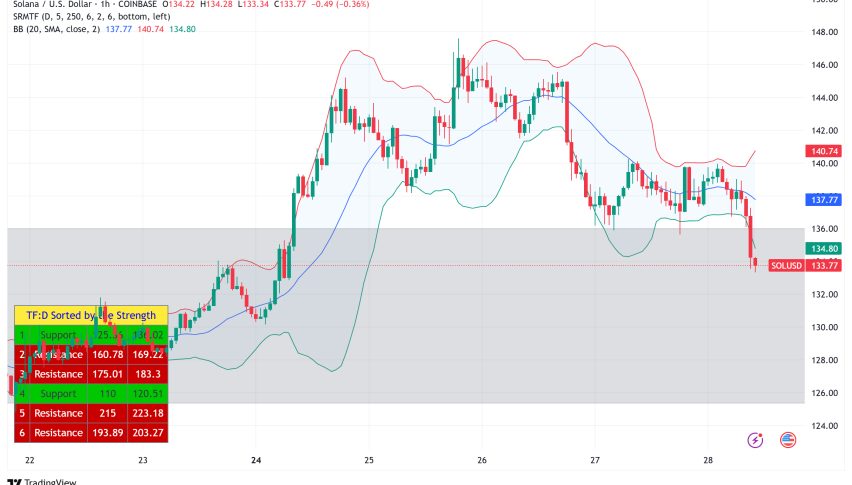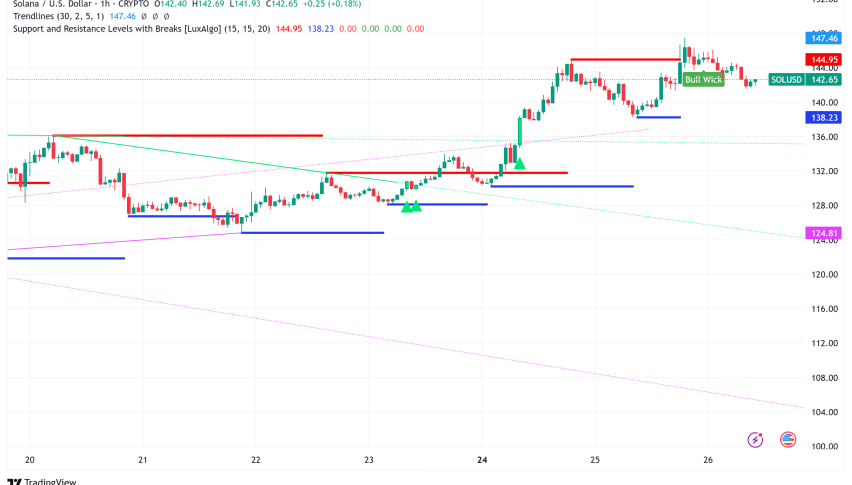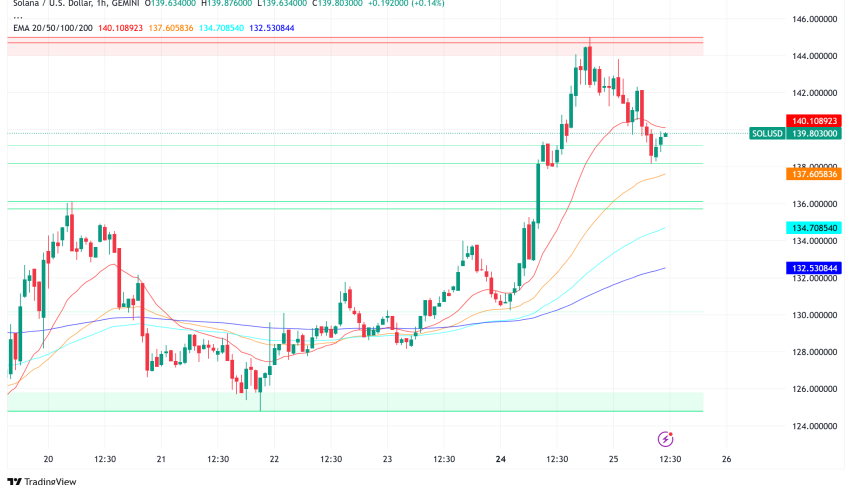Solana Bulls on a rough path
Solana exchange-traded funds (ETFs) based in the United States in 2024 are still not bright. Based on recent regulatory actions, these ETFs appear to have little chance of being approved under the current administration.

This conclusion is based on the required filings rejected by the US Securities and Exchange Commission (SEC). The financial watchdog rejected the Chicago Board Options Exchange’s (CBOE) 19b-4 filings for two potential spot Solana ETFs.
As a result, the CBOE website no longer contained these documents. This determination was reached following lengthy deliberations concerning Solana’s classification as a security, between the SEC and the issuers.
Price action indicated that the assets’ moving average analysis validates resistance at $150 and $154. These moving average values are significant indicators for anyone waiting for a possible market reversal because they show how difficult an upward move can be.
The Relative Strength Index (RSI), is now at 41.43, suggesting that the bearish trend may continue because of its weak momentum and closeness to the oversold zone.
The downward trend is further confirmed by the MACD indicator values, which stay negative. The state of the market indicates that critical support and resistance levels need to be closely watched.
The first significant support level, the 23.6% Fibonacci level at $129, is reached if the price declines further. The next significant obstacle to a future decline, the asset falling below this level, would be $117 (50 percent Fibonacci).
The vital 19b-4 filings required to start the SEC’s review procedure were never published in the Federal Register. As a result, the SEC stopped moving forward with approval or rejection. According to a flowchart provided by Bloomberg ETF analyst Eric Balchunas, the Solana ETFs didn’t proceed past the second stage of the process, which entails the SEC publishing the 19b-4 filing on their website.
Solana, frequently tagged the “Ethereum killer,” is at the center of an expanding controversy. The network is under fire for allegedly manipulating decentralization and allegedly running a covert Ponzi scheme. A significant portion of transactions on Solana—roughly 85% of all transactions—are voting transactions, which give the most powerful validators an advantage over newcomers and so foster an environment in which the rich get richer. Allegations of a pyramid scheme have arisen as a result of this dynamic, in which newly appointed validators are required to constantly contribute money to keep the system running, primarily helping more seasoned validators



